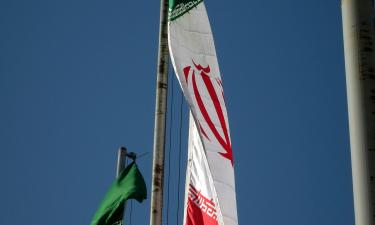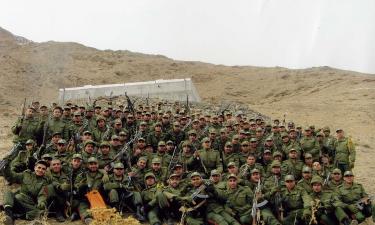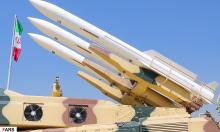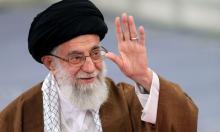Putin promises bright stable future for Russia in State of the Nation address
It became clear that achieving stability in the Russian economy is the central issue of Vladimir Putin's yesterday's speech
Any public speech from President Putin always enjoys universal attention. The rules of the Russian economic are still rather obscure, the legislation is contradictory, but one can always refer to the words of the president. It is definitely a weak argument at court, for example, but the words once uttered by the head of state is a quite efficient tool in the Russian economy. 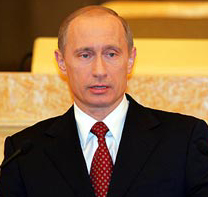
Hardly had Vladimir Putin finished his state of the nation speech in the Federation Council yesterday, when the cost of securities on the Russian stock market started going up.
Market members started speculating for the rise when Putin stated that Russian tax agencies did not have a right to terrorize business. The market was very optimistic about the president's order to the government to cut the term of limitation of action on privatization deals from ten to three years. In other words, the Russian president confirmed his devotion to the idea of the privatization amnesty. Putin rebuked Russian fiscal services, which is always good news for the business field.
As far as the privatization amnesty is concerned, the president complained of the government's sluggishness. “Adequate suggestions regarding amendments to the law have already been introduced to the government of the Russian Federation. Unfortunately, there's been no word received yet, although one had to correct only one word in one clause of the law. I request to accelerate the formal coordination process,” Interfax quoted the president as saying.
”Fiscal agencies must not disregard legal violations. However, there should be special forms found to clear back-taxes, which would guarantee interests of the state without destroying economy or pushing business in the dead end,” Putin specified.
Putin expanded on the issue of amnesty when he spoke about Russian businessmen's savings in offshore zones. Putin suggested Russian citizens should declare the capitals, which they saved in the past years, having paid the 13-percent income tax. “This scheme should be accompanied with two conditions: paying 13 percent of the income tax and adding appropriate funds on accounts of Russian banks. This money should work for our economy in our country, but not to hang somewhere in offshore zones,” the head of state said.
Vladimir Putin touched upon the problems of common Russians as well – fiscal authorities pay as much attention to people's scanty property as they do to oligarchs' mansions. “I do think it would be correct to cancel the tax on inheritable property. Billion-dollar fortunes are hidden somewhere in offshore zones anyway. They can't be inherited like a small garden cottage: one has to pay huge money for it; a lot of people simply can not afford it,” Putin emphasized.
Another fine gesture towards the population became Putin's confirmation of the political course to raise the income of budget-supported employees. “Theindexation of wages for budget-supported employees is to be 1,5 times faster than the raising of consumer prices,” Putin said.
It was clear that achieving stability in the Russian economy became the central issue of Vladimir Putin's state of the nation address. The firmness of private property rights is the major ground for running any type of business, the Russian president believes. “The rules that the state sticks to in this field must be understandable and clear for everyone. More importantly, they must be stable. It relieves people of any apprehension when they conclude agreements on such important issues as purchasing accommodation or privatizing it,” the president said.
The head of state pointed out that Russia is interested in the inflow of foreign investments, although investors often have to face a whole bouquet of restrictions, which can also be based on national security reasons. “It is about time we should strictly outline the economic spheres, in which Russia's security and independence dictate the necessity of control on the part of the national and the state capital,” said Putin.
According to the president, it goes about the Russian defense industry and strategically important fields of raw materials. Putin said that the government should develop a system of criteria, which determine certain restrictions for foreign capital for its participation in such projects.
The question about the participation of the foreign capital in strategically important branches of the Russian industry is extremely important nowadays. It is worth mentioning in this respect that the Russian government and the Federal Anti-Monopoly Service blocked the transaction for Siemens to takeover the Russian machine-building giant Power Machines (the latter is involved in the national defense industry in addition to other activities). Putin's words about the need for Russia to have a more precise law on the matter can apparently be viewed as the president's answer to all claims connected with the issue.
In general, Vladimir Putin made another confirmation of his views to investors, including foreign ones: more liberalization, more stability, better rules of the game, more generosity to old sins for business and higher wages for common people.
This is a good message for the society and for all business layers. Everyone heard something special in the president's state of the nation speech. Lubov Sliska, the first vice speaker of the Russian parliament believed that Vladimir Putin's speech was a clear evidence of the president's discontent with the work of the incumbent Cabinet of Ministers.
It brings up the idea that analysts of largest financial, industrial and oligarchic groups will have to spend a lot of time calculating how many times the president said the word “oligarch,” in which context the word was used, what his sentence implied, and which conclusions should be made at this point.
Photo by press-service of the Russian president
Subscribe to Pravda.Ru Telegram channel, Facebook, RSS!
